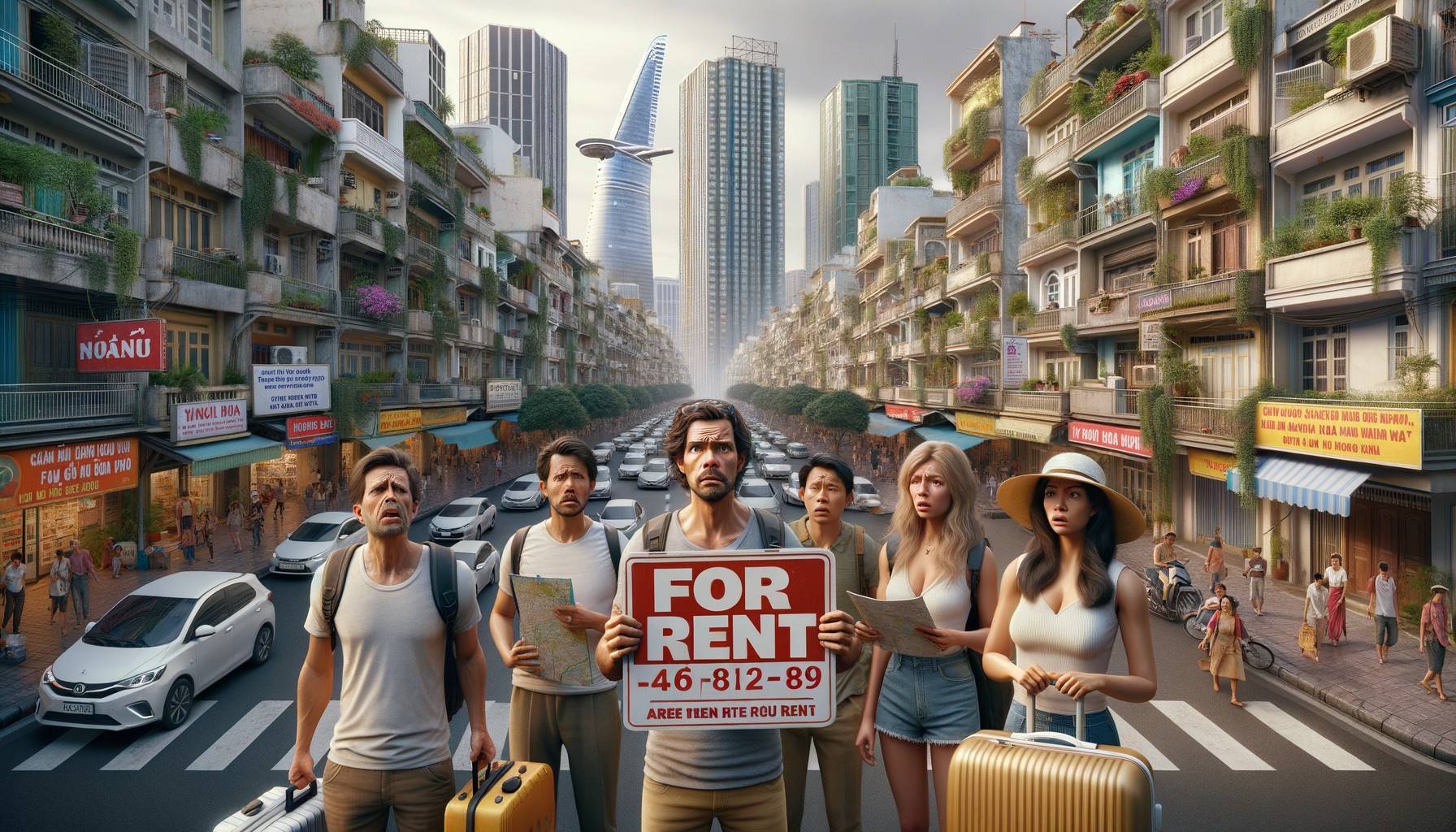
Short-term rental ban in Ho Chi Minh City — challenges and opportunities
The main reason for the introduction of the short-term rental ban in Ho Chi Minh City was numerous complaints from local residents about public order. Residents claimed that renting out apartments to tourists through platforms like Airbnb violates their privacy, creates additional noise and increases the burden on the infrastructure of apartment buildings. In addition, the city authorities are concerned about the lack of proper regulation of this sector. Many apartments are rented out without complying with the necessary legal regulations and paying taxes. This creates an uneven playing field in the market and deprives the city budget of potential income. At meetings of the Apartment Buildings Authority with residents of various districts of Ho Chi Minh City, it was decided to temporarily suspend short-term rentals of apartments. This will allow them to study the existing problems, develop effective legal regulation mechanisms and find a solution that takes into account the interests of all stakeholders.
Reactions from landlords and investors
The ban on short-term rentals has caused serious concerns among service providers, including apartment owners, property managers and service personnel. Many investors have already invested heavily in purchasing and renovating apartments specifically for renting to tourists. The unexpected change in regulations has left them in a difficult financial situation. Ms. Tran Hoa, a resident of Binh Thanh district, emphasizes that any changes in the rental sector should be implemented gradually and accompanied by a clear political strategy. This will allow investors to adapt to the new conditions without serious losses. Market participants note that short-term rentals are an important source of income not only for individuals, but also for the city budget through taxes. In addition, this segment plays a key role in the development of the tourism sector of Ho Chi Minh City, providing visitors to the city with affordable accommodation options.
Potential solutions to the problem
Local residents and experts agree that a complete ban on short-term rentals is not the best way out of the situation. Instead, it is necessary to develop effective legal mechanisms to regulate this sector. This will create a kind of «corridors» for the legal provision of short-term rental services and solve several problems at once:
- Ensure stable tax revenues to the city budget from the activities of landlords.
- Establish clear rules of the game in the market that protect the rights of all participants in the process.
- Minimize complaints from neighbors through strict regulations and liability for violating them.
One possible solution could be the introduction of a licensing system for apartment owners wishing to rent them out for short terms. A license will be issued only if a number of conditions are met, such as limiting the maximum number of guests, compliance with noise regulations, and increased liability for violating the rules. Another option is to create special zones or separate houses intended exclusively for short-term rentals. This will separate the tourist flow from residential areas and reduce the load on the infrastructure of apartment buildings.
The impact of the ban on the Ho Chi Minh City rental market
The introduction of a ban on short-term rentals could have a significant impact on the Ho Chi Minh City real estate market. The city is already facing high prices for long-term rentals, which creates problems for tourists and temporary workers. According to expert reports, renting a two-room apartment in central Ho Chi Minh City costs VND12-20 million per month (approximately USD500-870). This is up to 50% of the average income of local residents. Banning short-term rentals may reduce demand for housing in certain market segments, but at the same time increase the financial burden on tourists who are forced to look for more expensive alternatives to hotels. In the long term, restricting short-term rentals may negatively affect the tourist appeal of Ho Chi Minh City. Many travelers prefer to stay in apartments to immerse themselves in the local culture and save money on accommodation. The lack of affordable accommodation options may lead to a decrease in tourist flow and loss of income for the city's economy.
In conclusion, we note that the situation with the ban on short-term rentals in Ho Chi Minh City demonstrates the difficulty of balancing the interests of various groups in a rapidly developing metropolis. The desire of the authorities to protect the rights of local residents and restore order in the rental sector is understandable, but the decision must be balanced and take into account the opinions of all stakeholders. To reach a compromise, it is necessary to establish an open dialogue between city authorities, residents of apartment buildings, investors and short-term rental service providers. Only through joint efforts can we develop effective regulations that will protect the rights of city residents, maintain the investment attractiveness of the market and support the development of the tourism industry in Ho Chi Minh City. The situation with short-term rentals in Ho Chi Minh City is not a unique case, but a reflection of a global trend. Many large cities in the world, such as Barcelona, Amsterdam or New York, have already faced similar challenges and developed their own regulatory models. Studying and adapting the best global practices, taking into account local specifics, can be the key to successfully solving the problem in Ho Chi Minh City.
Install our app and get all the tools you need to search for real estate abroad in your smartphone! The mobile application will allow you to quickly access your personal account, manage your favorite properties and track your requests, directly exchange messages with sellers and buyers.


Portugal's Golden Visa program has undergone significant changes in 2025, opening up new opportunities for investors and contributing to a more sustainable economic development for the country. Find out how the new rules will impact the real estate market, innovative sectors and foreign investment prospects in Portugal.

Discover 10 gems of Europe — the best cities for an unforgettable holiday and a complete reboot in 2025! From historic capitals to cozy coastal towns, we will tell you where you can enjoy a stunning atmosphere, rich culture, exquisite cuisine and a relaxing holiday. Get ready to be inspired to travel again!

Ho Chi Minh City, Vietnam's largest city, has temporarily banned short-term rentals in apartment buildings. The decision has sparked mixed reactions among locals, investors, and market participants. In this article, we look at the reasons for the ban, its impact on the rental market, and possible solutions that take into account the interests of all parties.






 56
56  1
1  1
1  3
3 
















 1
1 



